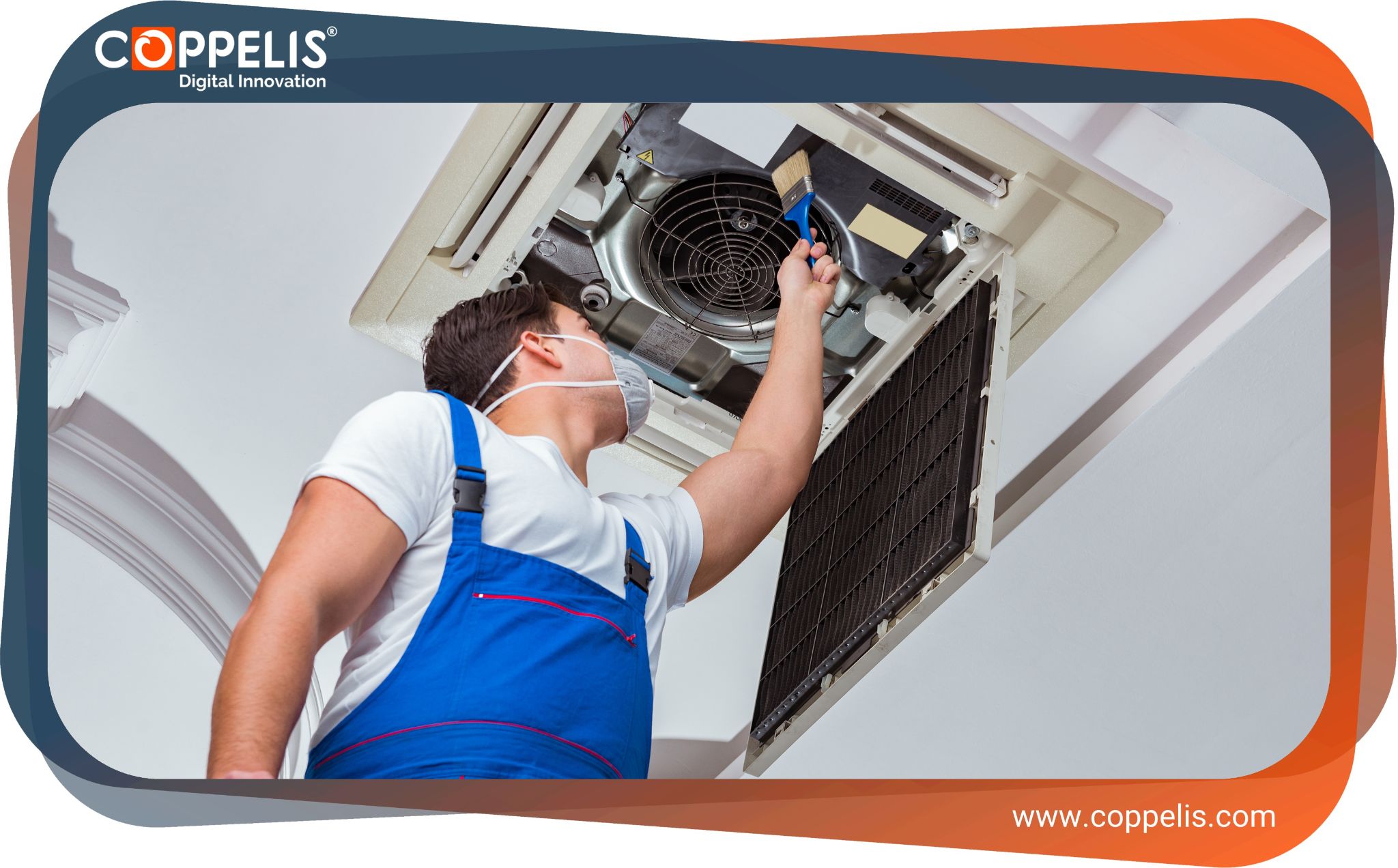In a world where energy efficiency is more than just a trend—it’s a necessity—HVAC systems (Heating, Ventilation, and Air Conditioning) play a pivotal role.
These systems account for a significant portion of energy consumption in residential, commercial, and industrial buildings.
However, poorly maintained or inefficient HVAC units contribute substantially to energy waste. Fortunately, smart HVAC maintenance scheduling is transforming the way facility managers tackle this issue.
This article explores how Smart HVAC Maintenance Scheduling reduces energy waste, improves operational performance, and drives cost savings.
Why Traditional Maintenance Fails Energy Efficiency
Conventional HVAC maintenance often follows a reactive or fixed schedule: either wait until something breaks or service the system every few months regardless of its actual condition. While this approach ensures periodic check-ups, it lacks precision.
It frequently leads to:
- Over-servicing of components that are still functioning optimally.
- Under-servicing of components under unusual stress or nearing failure.
- Increased energy usage from unnoticed system inefficiencies.
These inefficiencies are costly, not just financially but also environmentally. In today’s climate-aware world, smarter solutions are needed.
What is Smart HVAC Maintenance Scheduling?
Smart HVAC Maintenance Scheduling uses data-driven insights to optimize when and how systems are maintained. Powered by IoT sensors, cloud analytics, and machine learning, smart maintenance enables predictive and condition-based interventions instead of time-based ones.
Key components of smart maintenance scheduling include:
- Real-time monitoring of HVAC performance metrics (e.g., temperature, pressure, energy use).
- Predictive analytics that flag anomalies and potential failures.
- Automated alerts that trigger maintenance only when necessary.
- Optimized technician dispatching to align skills, tools, and timing with actual system needs.
How It Reduces Energy Waste
Smart HVAC Maintenance Scheduling is not just about avoiding breakdowns—it’s about maximizing system efficiency and minimizing waste. Here’s how:
1. Early Detection of Inefficiencies
Sensors monitor airflow, coolant levels, and compressor cycles. Any irregularity is flagged in real-time.
For instance, a clogged filter or refrigerant leak can be resolved before it forces the system to overwork, saving significant energy.
2. Condition-Based Servicing
Rather than sticking to a rigid calendar, smart scheduling adjusts based on actual usage patterns and system conditions.
If a unit is barely used, it might need less frequent servicing—saving resources.
If usage spikes (e.g., heatwaves), maintenance can be accelerated to maintain peak efficiency.
3. Reduced Downtime and Emergency Repairs
Emergency repairs often lead to temporary, energy-inefficient fixes.
By proactively identifying issues, smart scheduling allows for planned, effective maintenance—keeping systems running optimally.
4. Load Optimization Across Building Zones
Advanced scheduling systems can suggest load balancing across HVAC zones, reducing pressure on individual units.
This results in lower overall energy usage and longer equipment lifespan.
Real-World Results
Numerous organizations have already seen measurable benefits:
- Commercial offices report energy savings of up to 20% within the first year of implementing smart maintenance strategies.
- Hospitals and data centers, where climate control is critical, have reduced HVAC-related energy waste by as much as 30% using predictive models.
- Educational institutions utilize off-peak maintenance schedules, aligned with real-time usage data, to improve system uptime and reduce unnecessary energy expenditure.
Cost Savings Beyond Energy
While energy savings are the headline benefit, smart HVAC maintenance scheduling also drives:
- Lower maintenance costs: By reducing unnecessary visits and optimizing service routes.
- Extended equipment life: Fewer breakdowns mean fewer replacements.
- Improved indoor air quality: Clean filters and balanced airflow improve health and comfort.
- Regulatory compliance: Many regions now enforce energy standards; smart systems help facilities stay compliant.
Implementation: What It Takes
Transitioning to a smart maintenance model requires upfront investment in:
- IoT sensors and controls embedded in HVAC units.
- Cloud-based platforms for data aggregation and analytics.
- Trained personnel who can interpret insights and adjust schedules.
However, with costs dropping and ROI becoming clearer, the barriers are diminishing.
Best practices include:
- Conducting a full HVAC audit before implementation.
- Starting with a pilot zone or building to demonstrate effectiveness.
- Training facility teams on interpreting system alerts and scheduling accordingly.
The Role of AI and Machine Learning
Machine learning algorithms refine maintenance schedules by learning from past behavior, usage patterns, and seasonal trends.
This continuous improvement loop ensures that your HVAC system gets smarter over time—delivering more precise interventions with less waste.
The Future of HVAC Is Smart
As smart city initiatives grow and building automation becomes standard, Smart HVAC Maintenance Scheduling will move from innovation to expectation.
Integration with building management systems (BMS), green certifications, and ESG frameworks will further solidify its place in energy strategy.
By aligning maintenance with real-time needs, facility managers and building owners can unlock new levels of sustainability, comfort, and cost efficiency.
Reducing energy waste through Smart HVAC Maintenance Scheduling is a game-changer in facility management.
It’s a strategic shift from reactive to proactive, from routine to intelligent. With measurable results in energy savings, system longevity, and cost reduction, it’s time for building operators to embrace this modern approach.
Smart maintenance isn’t just smart—it’s essential.


